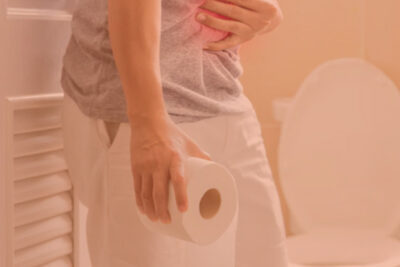
What simple trick empties your bowels?
Stools are stored in the lower digestive system, which includes the intestines, rectum, and anus. The brain sends a signal to the rectum to empty, and smooth bowel movements are essential for healthy colon health. Coughs, hard lifting, childbirth, and menopause can all weaken pelvic muscles, resulting in poor bowel control. Regular bowel movements are important signs of digestive health, and simple strategies can help to improve colon emptying.
Let us explore one such simple approach that may make a big impact in your digestion routine.
Water: The Overlooked Hero of Bowel Function and Digestion
The importance of water in facilitating good digestion is sometimes overlooked. Staying hydrated is a simple but effective strategy that might help you empty your bowels more quickly.
Here's how good hydration may help your digestive tract:
- Constipation prevention: Constipation, a frequent problem that interferes with regular bowel motions, can be caused by dehydration. Drinking enough water helps to reduce constipation by creating smoother, more regular bowel motions.
- Stool Softening: When your body is hydrated, it guarantees that your intestines have enough amount of water. This softens the feces, allowing it to travel more easily through the digestive tract.
- Enhances Gut Microbiome Health: Water is necessary for keeping a healthy gut microbiome. A well-hydrated body fosters the growth and activity of good bacteria in the digestive system, which contributes to general digestive health.
Tips to Stay Hydrated:
- Establish a target for water consumption: Drink at least eight 8-ounce glasses of water or fluids per day, with intake adjusted according to age, weight, climate, and physical activity. Fluids such as lemon juice and fruit juices can aid in the maintenance of regular bowel motions. Soups that are healthy and clear provide moisture to stools, making bowel motions smoother. Warm meals, such as soups, are simpler to digest. Adjust your consumption according on your age, weight, climate, and amount of physical activity.
- Consider water infusions: To add flavor and boost consumption, infuse ordinary water with cucumber, berries, or citrus slices. Fennel, a mild laxative, can be mixed with warm water to make a pleasant evening beverage. Fennel seeds aid bowel movement by boosting stomach enzymes in the digestive tract.
- Carry reusable water bottles: Carrying a bottle of water handy during the day makes staying hydrated easy. Refill it on a regular basis to guarantee a consistent intake of fluids.
- Develop a bowel routine: Drink a glass of water as soon as you wake up, before meals, and before bed.
- Monitor Signs of Dehydration: Keep an eye out for indicators of dehydration, such as increased thirst or dark yellow urine. Adjust your water consumption appropriately.
Sit on the toilet appropriately to empty your bowels without straining:
- Lean forward while keeping your back straight.
- Place your forearms on your knees.
- Keep your legs apart and your knees higher than your hips by raising your heels or using a footstool.
- Brace yourself by allowing your tummy muscles to thrust forward. This will assist you in widening your waist.
- Repeat the bracing with each need to empty your bowels.
- Breathe out with your mouth slightly open. Keep your mouth shut.
- As you finish, draw up your anorectal muscles (the muscles in your lower abdomen). This will help you seal your bowels more effectively.
Other points to remember:
- Limit caffeinated beverages to two per day.
- Eat a balanced diet, aiming for three meals per day and includes a variety of foods. Fiber, the non-digestible component of plant meals, is vital for gut health and stool consistency. Consume five servings of vegetables and fruits each day, as well as foods high in soluble fibre, such as oats, pulses, seeds, barley, rice, and pasta. Avoid insoluble-fiber rich foods.
- Avoid high-fat foods, especially those with high fat content, as the body struggles with fat processing, especially in Western diets, which can strain the bile-producing gallbladder.
- Omega-3 fatty acids, which are found in flaxseed, fish oil, and hemp seed oil, help with constipation by lubricating the intestinal walls. Omega-3 levels may be increased by eating fish, avocados, hemp products, and flaxseed, and supplements are available for individuals who do not get enough from their diet.
- Probiotics are found in many dairy products, including yoghurt and kefir, and help you empty your intestines by softening stools. They also boost overall intestinal health.
- To maintain excellent health, open your bowels after breakfast to move stools and boost the desire to open. To avoid constipation and to empty your bowels first thing in the morning, sit on the toilet for 15-20 minutes after breakfast.
- Increase daily activity, such as walking, swimming, or gardening, to improve bowel function by aiming for 30 minutes of movement and exercise.
- Medications, like painkillers, iron tablets, and antidepressants, can affect the functioning of the bowel, leading to constipation and loose bowels if taken excessively. Taking too many laxatives can cause you to have loose bowels.
- Glycerol suppositories can aid in defecation by moistening the bowel with water and inserting the pointed end first, working within 30 minutes. If bowels are incompletely empty, a glycerol suppository can be used post-defecation. Consult a healthcare professional before use.
Final thoughts
Improving hydration is a simple yet significant step to maintain a healthy digestive tract and empty bowels. Drinking adequate water on a daily basis improves regular bowel motions and general health. Other factors such as diet, regular exercise, and probiotic supplements play synergistic roles in easing bowel movements.